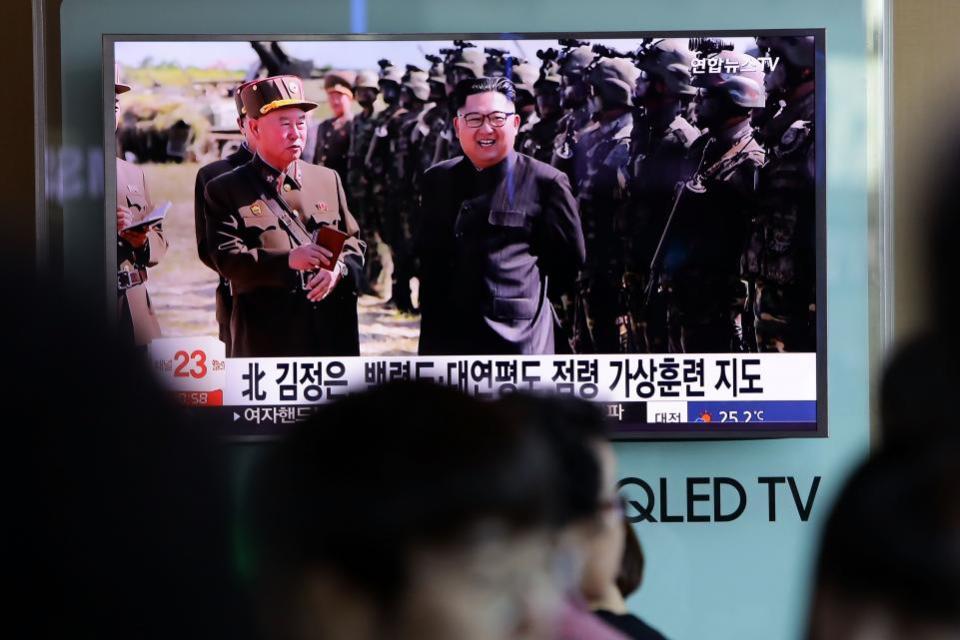North Korea Tests 3 More Missiles, Setting New Pace
North Korea fired off three short-range ballistic missiles roughly 20 minutes apart Saturday but one failed and none posed risk to the United States, the U.S. Pacific Command said in a statement late Friday.
The North, which completed two missile tests last month that drew the ire and ridicule of U.S. President Donald Trump as well as its lone ally China, saw its first and third missiles fly roughly 155 miles to the northeast after being fired from the Kangwon province before crashing into the sea, according to Reuters.
The tests increased the North’s total number of missiles fired this year alone to 21 over the course of 13 tests, according to CNN’s statistics. That puts the North well ahead of the pace it set last year when 24 missiles were fired.

Initially, Pacific Command announced the first and third missiles had failed to launch, but its assessment of the second missile blowing up “almost immediately” still appears to be accurate.
Along with the U.S., the territory of Guam, which had faced direct threats of a “sea of fire” from North Korean leader Kim Jong Un, was not in danger from the launches.
The South Korean government said Saturday it’s possible the North had tested a 300-mm caliber multiple rocket launcher, but that has not been confirmed by its military.
The tests were the first since July 28, when the North had fired off an intercontinental ballistic missile (ICBM) capable of reaching the U.S. mainland and major cities around the country if it was positioned for a longer trajectory.
But experts and reports have indicated it’s unclear if the North’s ICBMs were able to fly up into space and then survive re-entry into the Earth’s atmosphere in order to complete a strike.
The timing of the tests coincides with the U.S. and South Korean militaries participating in the joint Ulchi Freedom Drills, which involve computer simulations of a war and run until the end of the month, according to Reuters.
Such drills, and others like them that have also involved Japan, have been a common point of anger for Kim and previous North Korean regimes. The North has long accused the U.S. and its Southeast Asian allies of planning for a pre-emptive strike to overthrow the authoritarian government, and thus is often used a reason for continued missile and nuclear defense proliferation.
Related Articles


